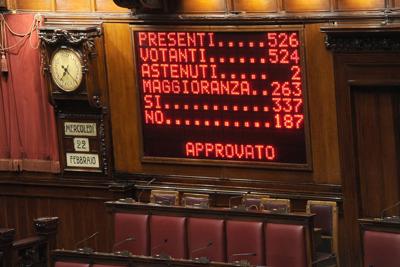Covid19, Restriction of personal freedom and Constitution
by Gennaro Santoro
During the Coronavirus emergency we have been learning about and getting familiar with precautionary quarantine measures for those returning from abroad and those who have been in contact with people who have tested positive for Covid-19. It’s a measure that severely restricts the freedom of movement of the person but that cannot turn into a deprivation of personal freedom, as it does for those who have tested positive for the virus. Only those who have tested positive are absolutely forbidden to leave their home or residence.
If these measures are justified by the need to protect public and individual health (Art. 32 of the Constitution) in order to avoid the spread of the virus, doubts regarding constitutional legitimacy arise in relation to the failure to provide for an individual written order delivered to the person concerned, to inform them of the constraints applicable to them, arising from these two forms of deprivation of personal freedom. Currently a telephone call or an oral communication from a health care worker is sufficient.
Failure to understand the obligations of a measure restricting personal freedom (comparable to house arrest) and moreover having these obligations communicated to relevant persons not by a public security authority, but by a medical authority, risks rendering the measure ineffective in the first place. Furthermore, there is no obligation to communicate to the subject the consequences in the event of a breach of the restrictions, nor whether and from which court the withdrawal or amendment of the measures applied to them can be requested.
However, there is a penalty of up to 5 years in prison applicable if those who are subject to precautionary quarantine, or a total ban on leaving their home, violate the rules and actually create a contagion. In the same way, for a sole violation of the absolute obligation to leave one’s home (but without the result of creating a contagion) there is an applicable penalty of up to 18 months in prison for endangering public health.
Therefore, the sacrosanct need to safeguard public health from the spread of contagion is implemented in a way which does not comply with the Constitution, which prescribes in Art. 13 the legal reservation to limit (exceptionally and clearly) the freedom of the person. In this case the regulation of these forms of deprivation of personal freedom arranged individually is instead, to a large extent, provided for by ordinances and ministerial decrees; finding only a slim legal basis in a primary source (Decree Law 19/2020). Still, contrary to what is provided for by Art. 13 of the Constitution, the sign-off by a judge is not provided for.
To understand the negative (and ineffective) impact that such a initiative this divergent from the inalienable principles held dear by those who drafted the Constitution, it is enough to consider that such measures are imposed on those who have been in contact, even without their knowledge, with COVID-19-positive people, as for example in the case of visiting a relative in one of the many residences for the elderly, which were unfortunately subject to the spread of the virus. In these cases, all it took was a telephone call from a healthcare professional reporting the application of the measure and the ban on travel and social contacts, to be able to impose a criminal sanction in the event that one violates orders and contributes to the spread of the virus.
Extending this example, if by chance it is not true that visited that particular residence for the elderly, there is no judge who signs-off on the measure, to whom you can assert your arguments for why the measure should not apply to you – being only able to bring a case before the Administrative Regional Tribunal. Similar concerns arise, for example, when these restrictions are imposed on a large number of people (as was the case in Rome, for example, with regard to about 500 inhabitants of an occupied building: Selam Palace). What awareness of the obligation not to leave the building, for an undefined period of time, will the occupant who does not receive a written order have, informing them of the consequences in case of transgression and the possibility of going before a judge to assert his/her reasons if they oppose these measures?
Therefore, if no changes are made by ordinary law, as happened for example in England, there is a concrete risk that, on the one hand, the measures adopted will not be effective because subjects will not be fully aware of the mandatory nature of the measures. Moreover, the subsequent criminal sanctions may not be actually imposed because, since there is no individual written and clear order, the criminal judge may consider the administrative violation that is a prerequisite for the violation of the criminal law non-existent. This may be particularly true in the face of measures that violate individual freedom which is constitutionally guaranteed and assisted by specific guarantees.
Judge Andrea Natale, on Questione Giustizia, wrote: “the measures of compression of personal freedom cannot be adopted only by administrative means, but must – even today – be adopted according to the law and under the control of judicial authorities. To admit today a contravention of Art. 13 of the Constitution would risk introducing a dangerous precedent into the historical memory of the system. Today, the emergency that justifies the exception to Art. 13 of the Constitution is the coronavirus. Tomorrow, who knows… The hope is that the legislator – if he really wants to linger in the metaphor of war – will continue the battle against the epidemic with the weapons that the Constitution has entrusted to him”.





